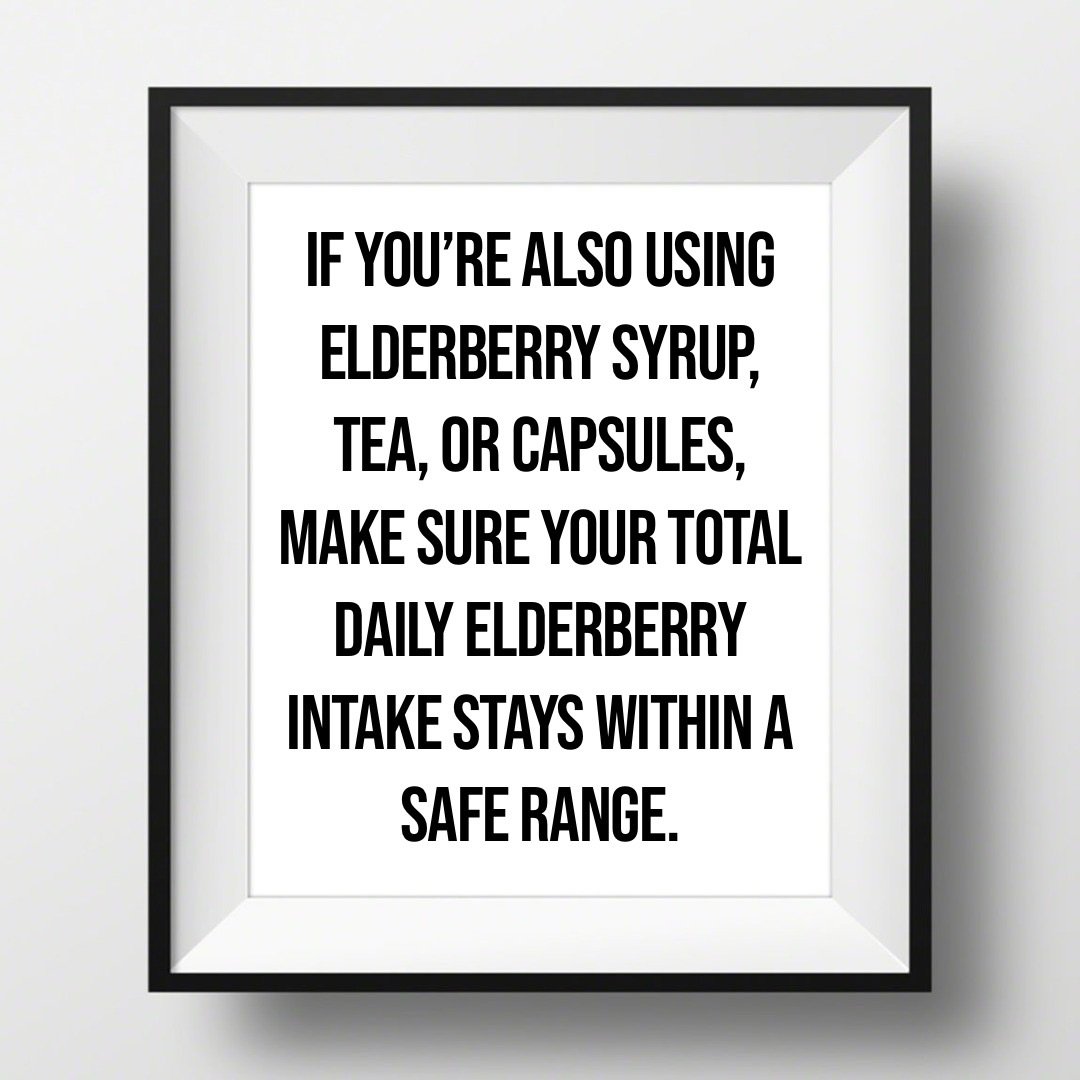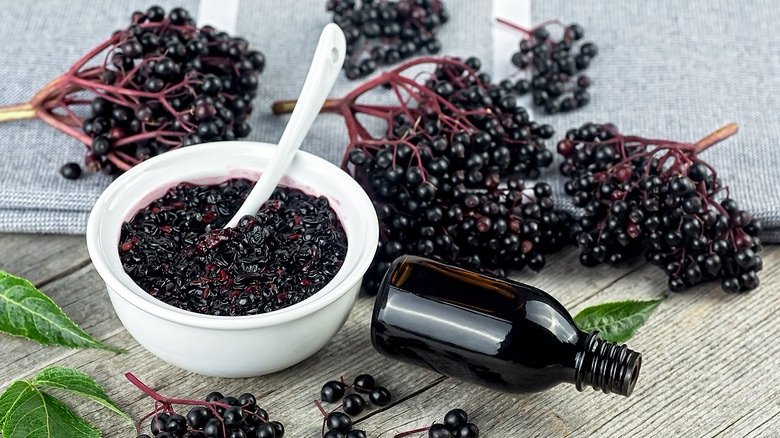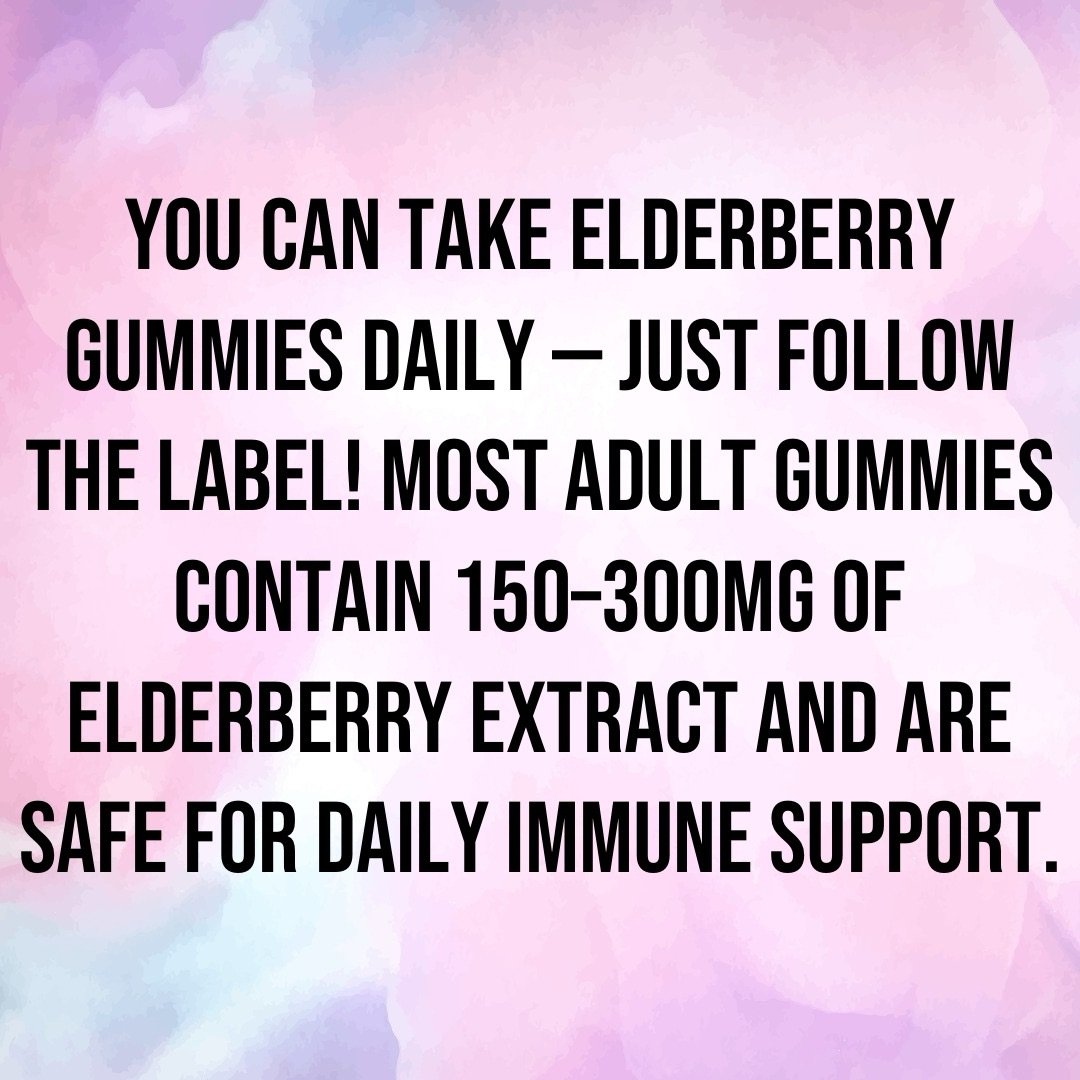
What Happens If You Take Too Much Elderberry
Elderberry might be natural, but it’s not something you want to go overboard with. The idea that “more is better” doesn’t apply here. Taking too much elderberry—especially in the form of concentrated syrups, capsules, or gummies—can cause digestive issues and other uncomfortable symptoms.
People sometimes use elderberry multiple times a day, especially during cold or flu season. But your body has limits, and elderberry isn’t meant to be taken like a multivitamin all year round. If you’re using it daily, especially in homemade syrup or store-bought extracts, you could be getting more than your body needs.
If you haven’t already, check out our elderberry syrup recipe that explains a gentler, natural approach.
Is Elderberry Safe in Large Amounts?
Elderberries are packed with flavonoids and antioxidants—but they also contain compounds that, when raw or undercooked, can be toxic. That’s why eating raw berries or consuming elderberry in excessive doses can backfire quickly. Symptoms like nausea, diarrhea, and stomach pain are common if too much is taken.
Even fully cooked and processed elderberry products like syrup or gummies should be taken in moderation. When people experience stomach pain after elderberry, it’s often linked to high intake or sensitive digestion.
A good rule of thumb is: if you’re doubling up on syrup, gummies, and capsules daily, it’s probably too much.

Not All Elderberry Supplements Are Equal
You’ve probably noticed that elderberry is available in several forms—syrups, capsules, gummies, lozenges, teas, and even powders. But not all products are created equally. Some syrups are super concentrated, while others (especially homemade) may be milder.
It’s important to consider that if you’re taking a spoonful of syrup in the morning, a few gummies after lunch, and a capsule at night, your total elderberry intake could be sky-high without even realizing it.
Want to make your own gentler version? Our guide on making elderberry syrup without honey is a great place to start—especially for toddlers or adults avoiding added sugars.
How Much Elderberry Should Adults Take?
The typical elderberry dosage for adults is about 1 tablespoon per day when you’re healthy. If you’re starting to feel under the weather, that can be increased to 3–4 tablespoons per day for short-term support—but not long-term.
Capsules and gummies usually range from 150 to 600 mg of elderberry extract per dose. So if you’re taking more than one product at once, or doing that every day, your total could add up fast.
We go deeper into this topic in our article on the ideal elderberry dosage for adults—a must-read if you’re unsure what’s too much.

What Your Body Might Do with Too Much Elderberry
Your body is pretty good at letting you know when it’s had enough. Taking too much elderberry often leads to digestive issues like cramps, gas, and loose stools. Some people experience bloating or nausea—especially when taking elderberry on an empty stomach or combining multiple forms of it in one day.
In rare cases, overuse has been linked to dizziness, headaches, or feeling lightheaded. If you ever feel worse after taking elderberry, stop and evaluate how much you’ve had recently.
For more insight, read our article on digestive side effects caused by elderberry use.
Can Elderberry Interact with Medications?
Elderberry is considered safe for most people, but it can interact with some medications. If you’re on immune-modulating drugs, like those used after organ transplants or for autoimmune conditions, elderberry might stimulate your immune system in ways you don’t want.
It could also potentially interfere with diuretics or diabetes medications, although research is still limited. That’s why it’s always smart to talk to a healthcare provider before adding elderberry into your daily routine—especially if you’re taking prescription meds regularly.
Stay tuned for the next sections — we’ll cover how long you can safely take elderberry, who should avoid it entirely, and smart ways to cycle elderberry into your wellness routine.

How Long Can You Safely Take Elderberry?
Elderberry isn’t something you should be taking every single day of the year like a daily vitamin. Most health experts recommend short-term use, especially during times when your immune system needs extra support—like during cold or flu season, or when others around you are sick.
For general wellness, taking elderberry for up to 5 days in a row is considered safe. If you’re using it longer than that, take a break or cycle off. Constant use without breaks may not only reduce its effectiveness but also increase the risk of side effects.
Check out our post on daily elderberry use to see what happens if you take it regularly long term.

Can Kids Take Too Much Elderberry?
Yes, and it happens more often than you think. Kids’ elderberry products—like syrup, gummies, and chewables—are made with smaller doses, but if you give multiple servings a day or mix different products, it adds up fast.
While elderberry is popular with parents looking for immune support, it’s super important to follow age-based dosage recommendations. Toddlers especially should only receive a teaspoon or less per day, depending on the concentration.
If you’re making your own syrup, follow a safe elderberry syrup for kids guide to make sure you’re not giving too much by accident.

Elderberry and the Flu: How Much Is Too Much?
People tend to overdo elderberry when flu season hits hard. You might feel tempted to take it three, four, or even more times a day thinking it’ll speed up your recovery. But overdosing during the flu can make you feel worse—causing diarrhea, stomach cramps, or fatigue.
For flu support, most sources suggest taking 1 tablespoon of syrup up to 4 times per day for 5 days max. That’s it. More than that, and you’re just stressing your body instead of helping it fight.
If you’re using elderberry as part of a flu protocol, pair it with rest, fluids, and maybe look at our guide on how to make elderberry syrup without honey for a gentler option when your stomach is sensitive.

Who Should Avoid Elderberry Altogether?
Not everyone should take elderberry. If you have an autoimmune disease, are pregnant or breastfeeding, or are taking immune-suppressing medications, elderberry might cause problems. It can stimulate the immune system, which isn’t ideal in those situations.
Also, anyone with allergies to berries or tree pollen might experience allergic reactions to elderberry. If you’ve never taken it before, start slow with a low dose to see how your body reacts.
Always consult your doctor if you’re unsure, especially before giving elderberry to young kids, the elderly, or people on medications. And if you’re looking for alternatives, our post on elderberry tea vs syrup can help you find what might work better.

How to Use Elderberry Safely Going Forward
The key with elderberry is balance. It’s a powerful tool for supporting your immune system—but only when used wisely. Stick to recommended dosages, avoid stacking multiple products unless you’ve done the math on total elderberry content, and take breaks between cycles.
Homemade syrup users should measure doses carefully and avoid spooning it out multiple times a day just because it tastes good. (Yes, we get it—it’s delicious.)
If you want to build your own immune-boosting habit, you can follow our easy guide to making elderberry syrup without honey and keep control over ingredients and strength.

As an Amazon Associate we earn from qualifying purchases through some links in our articles.